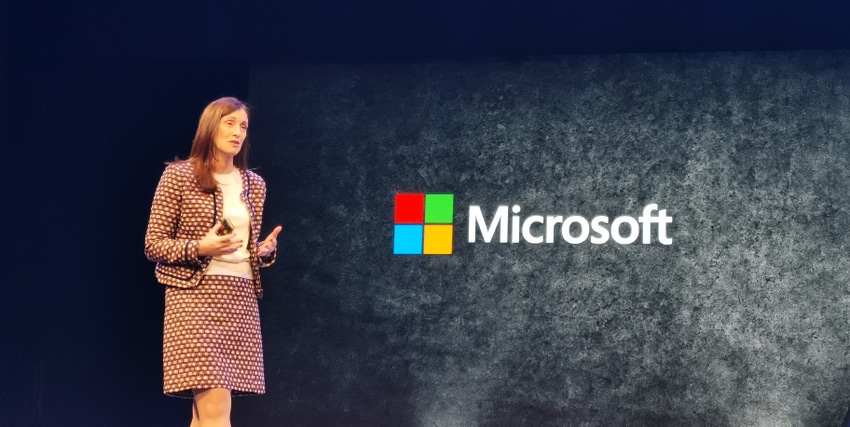Artificial intelligence has been hyped as the technology which will drive profits in the next era, though few in the technology want recognise how painful the technology will be for some segments of society.
October 31, 2018

Artificial intelligence has been hyped as the technology which will drive profits in the next era, though few in the technology want recognise how painful the technology will be for some segments of society.
The propaganda mission from the technology world was incredibly present at Microsoft’s UK event Future Decoded. Of course, there are benefits from the implementation of AI. Business can be more productive, more intelligent and more proactive, tackling trends ahead of time and gaining an edge on competitors. There is a lot of buzz, but it might just turn out to be justified.
Despite this promise, Microsoft has seemingly done something this morning few other technology companies around the world are brave enough to do; recognise that there will be people screwed by the deployment.
“There is a risk of leaving an entire generation behind,” said Microsoft UK CEO Cindy Rose.
The risk here is the pace of change. While previous generations might have had time to adapt to the impact of next-generation technologies, today’s environment is allowing AI to disrupt the status quo at a much more aggressive pace than ever before. Rose pointed towards the explosive growth of data, pervasiveness of the cloud and much more powerful algorithms, as factors which are accelerating the development and deployment of AI.
One question which should be asked is whether the workforce can be re-educated and reskilled fast enough to ensure society is not being left behind? Yes it can, but Rose stated the UK is not doing enough to keep pace with the disruption.
Looking at statistics which support this statement, Microsoft has released research which found 41% of employees and 37% of business leaders believe older generations will get left behind. Now usually when we talk about older generations and a skills gap, retirees comes to mind. However, those in the late 40s or early 50s could be the more negatively affected. The ability or desire to reskill might not be there due to the individuals entering the final stages of their career before retirement, though the risk of redundancy will be present. How are the people who might be made redundant 3-4 years short of retirement going to be supported? This is a question which has not been answered or even considered by anyone.
To help with imbalance, Microsoft UK has announced the launch of its AI Academy, which is targeted on training 500,000 people on AI skills. This is not just a scheme which is aimed at developers, but also IT professionals, those at risk of job loss and executives in both the business and public sector world.
As the technology industry has pointed out several times, there will be jobs created as part of the AI enthusiasm. But here is the risk, are those who are victims of job displacement suitably qualified to take these jobs? No, they are not. Uber drivers who fall victims to the firms efforts in autonomous driving, or how about the bookmaker who will be made redundant by SAPs powerful accounting software. These are not data scientists or developers, and will not be able to claim a slice of the AI bonanza which is being touted today.
But perhaps the risk has been hyped because there is too much focus on the negative? KPMG’s Head of Digital Disruption Shamus Rae suggested too much attention has been given to the dystopian view of AI, instead of its potential to unlock value and capture new revenues. Comfused.com CEO Louise O’Shea said one way her team implemented AI was to pair technical and non-technical staff to, firstly, allow front line employees to contribute to development and make an application which is actually useful, and secondly remove the fear of the unknown. The technical staff educate the non-technical staff on what the technology means and why it can help.
These are interesting thoughts, and do perhaps blunt the edge of the AI threat somewhat, but there will be those who use AI for purely productivity gains, not the way the industry is selling it. These are not businesses which will survive in the long-term, but they will have a negative impact on employees and society in the short-term. When you are lining up in the dole queue, the promise of an intelligent, cloud-orientated future is little comfort.
Microsoft UK CEO Cindy Rose is right. AI will power the next-generation and create immense value for the economy. But, no-where near enough is being done to help those at risk of job loss to adapt to the new world. The aim here is not to hide the negative with an overwhelming tsunami of benefits, but to minimise the consequences as much as possible. Not enough is being done.
About the Author(s)
You May Also Like








.png?width=300&auto=webp&quality=80&disable=upscale)


_1.jpg?width=300&auto=webp&quality=80&disable=upscale)


.png?width=800&auto=webp&quality=80&disable=upscale)